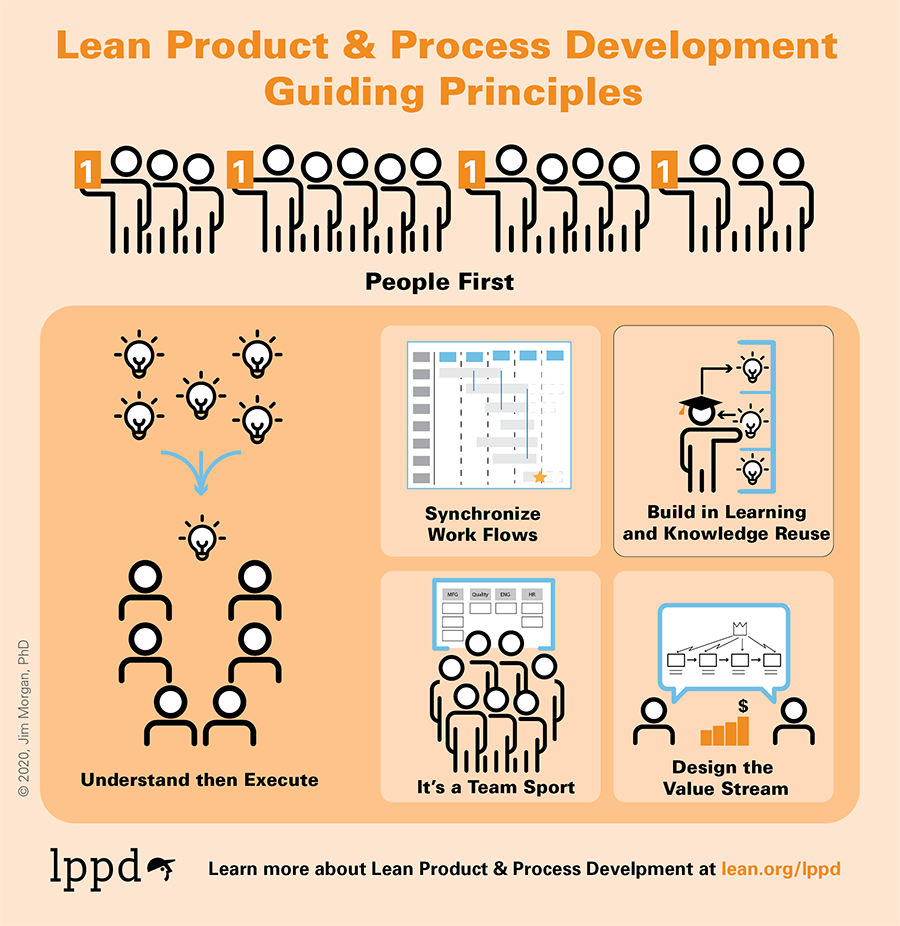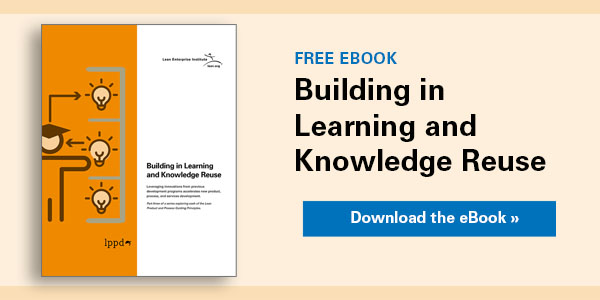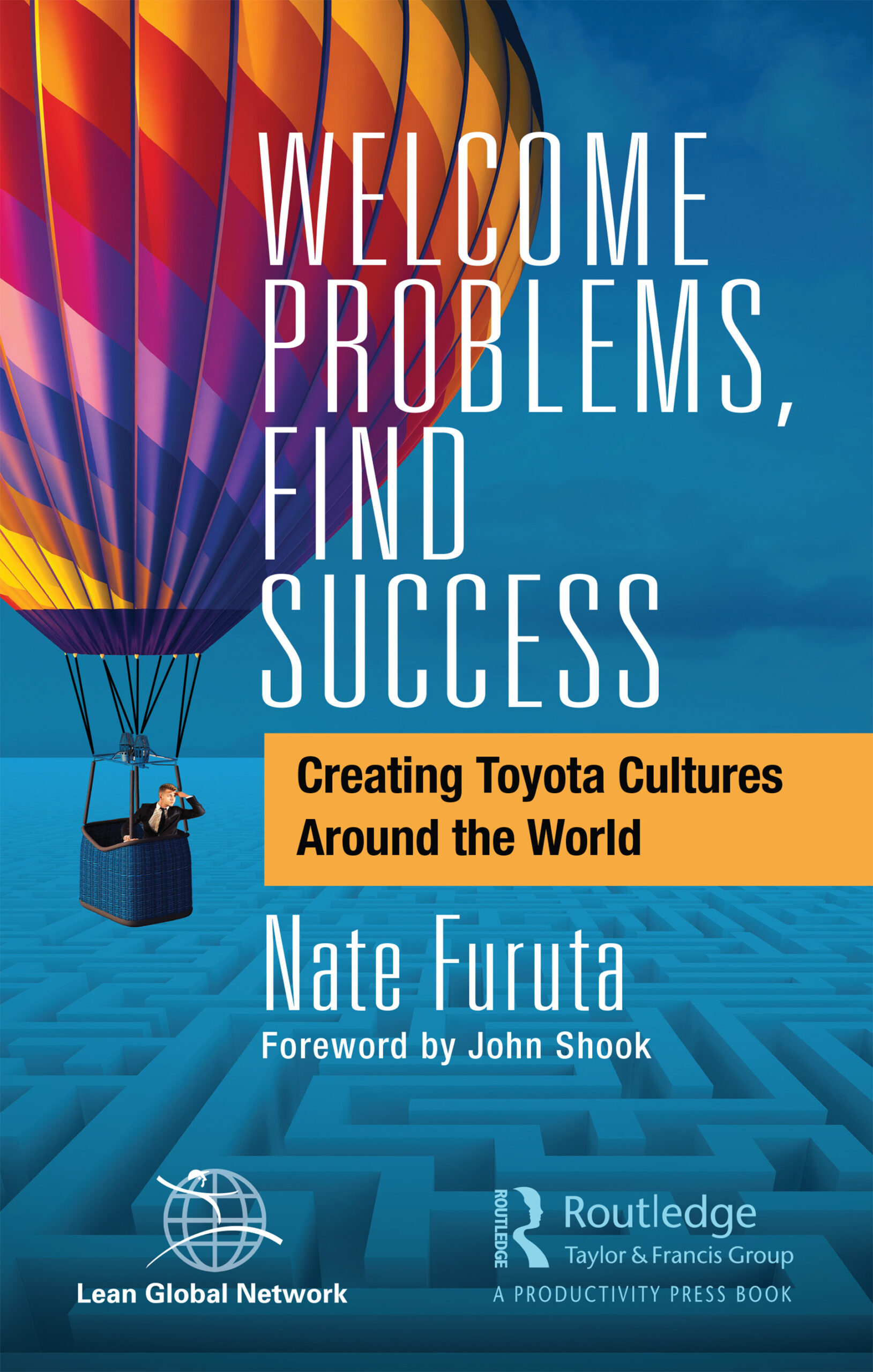Be among the first to get the latest insights from LEI’s Lean Product and Process Development (LPPD) thought leaders and practitioners. Subscribers to The Design Brief, LEI’s newsletter devoted to improving organizations’ innovation capability, received this video and article.
People have been writing about “the learning organization” for nearly as long as there have been business books. I started thinking seriously about the topic in the late nineties after reading Peter Senge’s seminal work The Fifth Discipline. Since then, it has become increasingly clear to me that the ability to learn and apply that knowledge to improve performance is the foundation of high-performance organizations. It is at the heart of continuous improvement and enables the pursuit of excellence in all facets of our lives.
Not surprisingly, learning and knowledge reuse is just as essential to product and process development. In fact, the failure to learn effectively dooms your organization to painful mediocrity and eventual obsolescence.
There are many nuances to organizational learning and many good texts to help you. But for the purposes of introducing this lean development video, I encourage you to keep in mind three essential elements.
First, there is no organizational learning without individual learning. Your organization is, after all, a collection of individuals. Consequently, your hiring, retention, and promotion should show that you value people who are learners. Their experience and demonstrated competence are, of course, critical. Still, they should also be curious, willing to test limits, and humble enough to realize they do not have all the answers. After all, there is no point in learning when you already know everything. These characteristics are especially essential for your leaders to have.

Second, there are two types of knowledge you must account for in your learning strategy: Tacit knowledge, also called “know-how,” is critical for specialized skills, and explicit knowledge such as data and facts. Explicit knowledge is more easily captured and shared. You can embed it in CAD tools or knowledge databases. Tacit knowledge is much more challenging to share, requiring longer relationships between teacher and student — and a great deal of persistence.

Finally, learning should be woven into every aspect of your development system. Learning should be part of the way people do their work. Well-run design reviews, especially at the gemba, are one of my favorite ways to do this because it addresses both types of knowledge. The reviews should be the epitome of rapid learning cycles. Trade-off curves, reflection events, A3 problem-solving, and dynamic standards are a few other methods of building learning into your work, and there are many others.
But the tools and methods are available to everyone. The attributes that separate real learning organizations from wannabes are focus, discipline, and perseverance — all characteristics that are in evidence in the organizations in this month’s video.
This month’s video features excellent examples of building learning and knowledge reuse into the development process from three leading LPPD practitioners:
- Clive Glover, director of strategy, Pall Biotech, tells us how using a fixed and flexible approach to knowledge reuse dramatically reduced the lead time of delivering a lifesaving Covid-19 vaccine.
- Gary Yukon, director of engineering, Earth Moving Division, Caterpillar, shares how active knowledge management and engineering standards build better products and more capable engineers.
- Natalie Reed, project manager, Pella Corporation, describes how they work to close knowledge gaps early in programs to achieve better performing products and product development programs.
Designing the Future
An Introduction to Lean Product and Process Development.







